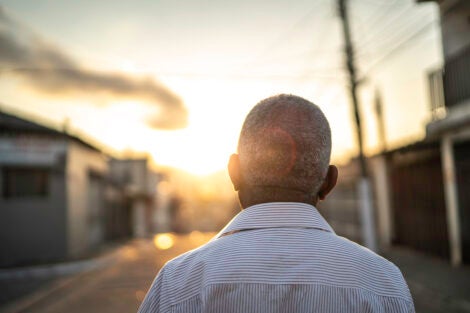February 23, 2024 — South Africa continues to have one of the highest rates of HIV in the world, but its successful antiretroviral programs have turned the disease into a chronic condition for millions of people. As a result, more people with HIV are living into middle age and beyond. Now, the country needs to adapt its prevention and treatment programs—which are primarily focused on adolescents and young adults—to better meet the needs of an older population, according to a February 18 commentary in The Conversation, co-authored by researchers affiliated with Harvard T.H. Chan School of Public Health.
Jen Manne-Goehler, SD ’12, Julia Rohr, and co-authors are part of the research team for HAALSA (Health and Aging in Africa: Longitudinal Studies in South Africa), a study of older adults that’s looking at HIV prevention and treatment outcomes, among other research aims. The study is a collaboration between the Harvard Center for Population and Development Studies, Harvard Chan School, the University of the Witwatersrand, and the University of Cape Town.
The study found high prevalence of HIV among participants over 40—nearly one in four. Among older adults with HIV, 63% were taking antiretroviral therapy and most were virally suppressed, according to the study.
Despite the increasing numbers of older adults in South Africa with HIV, the commentary noted that few studies have looked at HIV-related stigma in this population. A quarter of HAALSA participants experienced social stigma around HIV infection, and the study has found that this can pose a significant barrier to testing.
According to the authors, strategies tailored towards older adults in South Africa are needed to prevent new HIV infections and to ensure that those living with the disease achieve and maintain viral suppression.
Read The Conversation commentary: HIV among older South Africans in rural areas: big study shows there’s a problem that’s being neglected
Photo: iStock / FG Trade
